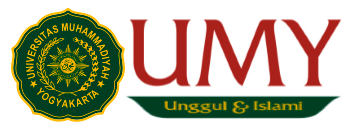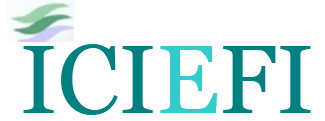Retraction
Acording to the COPE Retraction Guideline, retraction is a mechanism for correcting the literature and alerting readers to articles that contain such seriously flawed or erroneous content or data so that their findings and conclusions cannot be relied upon. Unreliable content or data may be resulted from honest error, naïve mistakes, or research misconduct. The main purpose of retraction is to correct the literature and ensure its integrity rather than to punish the authors. Retractions may be used to alert readers to cases of redundant publication, plagiarism, peer review manipulation, reuse of material or data without authorisation, copyright infringement or some other legal issue (eg, libel, privacy, illegality), unethical research, and/or a failure to disclose a major competing interest.
The editor will consider retracting an article if several circumstances exist, including the following:
- There is evidence of significant errors in an article's research, including errors and experimental manipulations, calculations, drawings, and data.
- Research findings that have been published elsewhere are discovered without notifying the editor and without obtaining permission to republish.
- There has been a violation of the research ethics code.
- The peer-review process is manipulated.
- There is an unauthorized use of data that violates copyright or other laws, or there is an unauthorized use of certain data.
- The author has an unreported conflict of interest with the scientific committee or editors.
Withdrawal
The International Journal of Islamic Economics and Finance (IJIEF) selects manuscripts through a Call for Papers, which invites authors to submit manuscripts that fit the journal's mission and scope. A rigorous peer-review process occasionally prompts authors to submit their manuscripts not only to the International Journal of Islamic Economics and Finance (IJIEF), but also to other journals. This resulted in the author retracting the manuscript because it was more readily accepted for publication by other institutions, but the revocation could also be for other reasons. As a result, we developed a three-stage manuscript removal policy:
- Prior to the Peer-Review Process: The author may request to retract the manuscript prior to the peer-review process being completed; the editor will then decide whether the manuscript will be withdrawn.
- During the Peer-Review process: If an author requests that the manuscript be withdrawn after the review process has begun, the author must submit a letter to the editor and Scientific Committee signed by all authors involved explaining compelling ethical reasons.
- Following Publication: The author cannot withdraw a manuscript from the International Journal of Islamic Economics and Finance (IJIEF) for any reason.
Editors and members of the Scientific Committee are concerned with and appreciative of the peer-review process used to produce high-quality scientific publications. As a result, writers must be familiar with all journal policies and procedures and anticipate any potential conflicts that may arise prior to submitting the manuscript. If a manuscript is accepted for publication and is found to contain scientific errors, accidental duplication of another published article, or a violation of our ethical guidelines for publishing, such as multiple submissions, false claims about authorship, plagiarism, reviewer bias, improper use of data, or improper research behavior, the manuscript will be handled according to the ethical behavior policy.
Correction
Corrections to peer-reviewed content are classified into three types:
- Publisher correction (erratum): to inform readers of a significant error made by publishing/journal staff (typically a production error) that jeopardizes the article's publication record or scientific integrity, or the authors' or journal's reputation.
- Author correction (corrigendum): to inform readers of an important error made by the Authors that jeopardizes the article's publication record or scientific integrity, as well as the Authors' or journal's reputation.
- Addendum: a supplement to the article written by the Authors to clarify inconsistencies, to expand the existing work, or to otherwise explain or update the information in the main work.
The Editor(s) of a journal make the decision whether to issue a correction, sometimes with the assistance of Reviewers or Editorial Board members. Managing and editors will contact the Authors of the relevant paper to request clarification, but the Editors will ultimately decide whether a correction is necessary and, if so, what type.












1.jpg)